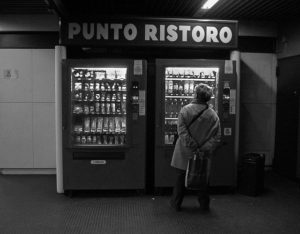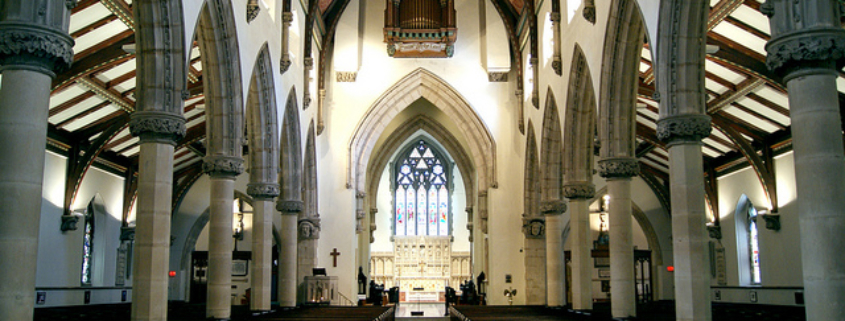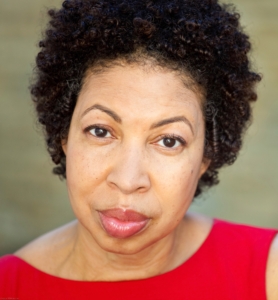Rituals of Kindness
… for all our outward differences, we in fact all share the same proud type,
the most important office in a democracy, Citizen.
~President Barack Obama
I have an aging mom. She lives in Brooklyn, New York while I live in Los Angeles. We talk almost every day, and through our conversations, I attempt to glean changes in her perception, cognitive ability, attitude and disposition. I wonder if she is eating right and getting enough exercise. I ask if she’s spoken to her friends and distant relations and how they are doing. I’ve discussed my mom moving to Southern California, but that would take her away from the community of friends and neighbors she loves, the home she’s worked so hard to maintain throughout the years, and her beloved church choir.
The men and women in my mother’s choir have an odd practice of greeting one another by their surnames. It has always been Mrs. Woods or Mr. Franklin or Mrs. Bullock. Having known each other for years they nevertheless maintain a reserved formality when interacting with one another. The formality speaks to a deep respect, an agreed-upon social order and a level of graciousness I never see in younger generations. There is gentility and sweetness, a reverence for decorum and civility that is an outlier in modern interaction rather than the norm. I watch these interactions between my mother and her friends now with a sense of awe. It has become clear that, as a country, we are losing something. Like the disappearance of the monarch butterfly, something of grace and beauty is slowly fading from the world.

Photo credit: Angela Bullock
With accelerating frequency, my mother is losing those who make up her social network and help give her life meaning. Mrs. Woods, her longtime neighbor, lived just a few doors down the street. She died right before Christmas.
Mrs. Woods also sang in the choir. Called the Chancery Choir, it’s made up of the elders, the decades-old members of Bridge Street African Methodist Episcopal Church, the oldest black congregation in Brooklyn. It was founded in 1766 and incorporated in 1818.
Both women were sopranos and longtime friends. And so to relieve Mr. Woods from his vigil, my mom sat by her friend’s bedside and held her hand in the hours before she passed.
A few months earlier, my mother’s choir director, Mrs. Clark, suddenly died. A former music teacher, she was petite and always fashionable. Ninety year old Mrs. Clark continued to direct the choir and play the church organ until the new pastor determined that her music program, with its traditional anthems, hymns and spirituals, needed updating. In an attempt to attract the generation of younger parishioners, Mrs. Clark was replaced. Upon losing this most significant purpose in the evening of her long successful life, Mrs. Clark became ill. She died within the year. I cannot help but believe that the way Mrs. Clark was discarded helped to hasten her death.
* * *
The coarsening of our culture has been gradual. Within my own family, I don’t recall my mother ever uttering a single expletive, though my late father cursed like a sailor. It feels to me as if the culture has normalized the habits of my long dead father while my mother’s refinements and those of her friends are gradually fading into the past. I’m referring to the everyday neighborliness shown by individuals during ordinary encounters. Not the unfortunate events of war, crime, discrimination, or the myriad acts of cruelty that have always plagued human interaction. I’m speaking of the callous lack of manners, as reported on the local news, witnessed in our malls nationwide, of the rash and sometimes dangerous aggression enacted behind the wheels of our cars, and the ever increasing lack of common courtesy on social media.
Social media has not only become a vehicle through which to disseminate false information, it has rapidly become the primary vehicle for crude, unkind and disparaging communication. We are losing the capacity to simply be nice to one another, as the anonymous nature of online platforms allows for and actually gives us permission to dismiss the humanity of our fellow citizens. With increasing ferocity we insult, berate, and defame those we cannot see.
Con artists and charlatans have always been among us. Smooth as silk, the cunning and duplicitous use of courtesy and social grace blithely hide their corrupt agenda. I do not believe, however, that those individuals represent the majority of us. I believe that a renewed commitment to kind, thoughtful and courteous discourse within our families, among our work associates, and especially in our encounters with those with whom we disagree will go a long way in disrupting the downward spiral into the pool of lies and false assumptions that is taking hold of our culture.
But it requires pausing before speaking, or tweeting, or posting. It requires a breath before an impulsive, reactionary, and possibly destructive communication. It is in those micro-courtesies that we fortify our society. For, when someone is kind to me, I am more inclined to be kind to the next person I meet.

Photo credit: Creative Commons
The reverse is also true. Callous behavior ripples beyond its origins like a stone thrown into a tranquil body of water. The choices are subtle in their effect on our culture. And it is our leadership, both cultural and political, the (often unwitting) arbiters of taste and decorum who set the tone. Reasoned and compassionate discourse at the top has never been more necessary.
As our country moves through this political transition, my feelings of loss with respect to my mother and her friends is no coincidence. It feels, at least to me, as if we are bidding farewell to an era of decorum and grace; we are ushering in an age of crassness and naked vulgarity.
Demagoguery is nothing new and resistance will not only require healthy skepticism, but strength of character and a disciplined, principled adherence to respectful discourse. When some complain that our society has become too politically correct, I wonder if they resent the social agreement to no longer weaponize words like “faggot” and “nigger” in their public discourse. Isn’t the use of politically correct language a choice requiring both thoughtfulness and empathy? Doesn’t careful speech signal a willingness to share space with, and acknowledge the value of those who have been marginalized? Are not all of our lives enriched when our leaders lead not just from strength but also with compassion?
The unwillingness to think before speaking or tweeting or posting, and the insistence on one’s right to refer to those who are different in traditionally derogatory terms, is lazy and cruel. Whenever we write or post or tweet or speak, it is our responsibility as civil and humane citizens to raise the level of discourse. Doing so could help mitigate the continued coarsening of our society and the dehumanization of our neighbors. We mustn’t allow others, particularly our temporarily elected political leadership, to alter our course toward a more welcoming, tolerant and compassionate nation. Words matter.
I’m writing this for my own edification, for I am as susceptible to lashing out as anyone. It’s why I have had difficulty writing this essay. I started and stopped numerous times in the last week. Right now I want to scream and curse and spit like a child. It is hard to resist the impulse to hit back in the midst of noxious political rancor. But such behavior weakens that stage on which we all must stand in order to reach one another—in order to live with one another.
* * *
Every time my mother loses a friend I feel her gradual retreat from the world. I become more aware of her delicate light beginning to fade, of her slowly slipping through my fingers. With each loss, passing conversations further lose their crispness, their now-ness. With each loss her language is less focused, seemingly shrouded in the past. Each death takes a little more out of her.
Every life eventually ends and I am keenly aware that the loss of my mom is somewhere in my future, so I hold on to her softness and, now more than ever, appreciate the emotion she so freely wears on her sleeve, her lack of guile and her very open heart. I find myself reveling in the beauty found in the ordinary greetings between my mom and her friends, the tender way they hold one another’s humanity within the gracefulness of their encounters. It feels Old World in our increasingly changing landscape.
Change is that disruptive mechanism, that inevitable fact of public and private life that forever moves us forward but sometimes also pulls us back. It is my mother’s open heart that I will strive to emulate in the days and weeks to come. If we must cling to the past, let it be to the rituals of kindness.
Angela Bullock is an actor/writer pursuing an MFA in Creative Nonfiction at Antioch University LA.






